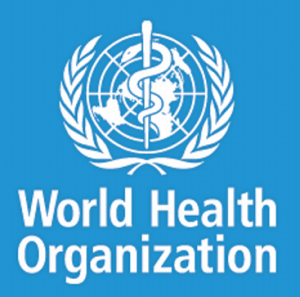West Africa’s first-ever case of Marburg virus disease confirmed in Guinea
 Health authorities in Guinea have confirmed a case of Marburg virus disease in the southern Gueckedou prefecture.
Health authorities in Guinea have confirmed a case of Marburg virus disease in the southern Gueckedou prefecture.
In a statement made available to ghanabusinessnews.com, the WHO said this is the first time Marburg, a highly infectious disease that causes haemorrhagic fever, has been identified in the country, and in West Africa.
Gueckedou, where Marburg was confirmed is also the same region where cases of the 2021 Ebola outbreak in Guinea as well as the 2014–2016 West Africa outbreak were initially detected. Due to the outbreak, cross-border surveillance is being enhanced to quickly detect any cases, with neighbouring countries on alert.
The Marburg virus disease (MVD) is a virulent, epidemic-prone disease associated with high case fatality rates. In the early course of the disease, clinical diagnosis of MVD is difficult to distinguish from other tropical febrile illnesses, because of the similarities in the clinical symptoms.
According to the WHO, the differential diagnoses to be excluded include, Ebola virus disease, as well as malaria, typhoid fever, leptospirosis, rickettsial infection, and plague. MVD is transmitted by direct contact with the blood, bodily fluids and/or tissues of infected persons or wild animals (e.g. monkeys and fruit bats).
The WHO said the Ebola control systems in place in Guinea and in neighbouring countries are proving crucial to the emergency response to the Marburg virus. It noted that currently, there is no specific therapeutic or drug approved for MVD and added that supportive care including: close monitoring of vital signs, fluid resuscitation, electrolyte and acid base monitoring along with management of co-infections and organ dysfunction, are critical components of care and optimize patient outcomes and survival.
Giving a background of how the disease was detected in Guinea, the statement said the MVD which is in the same family as the virus that causes Ebola, was detected less than two months after Guinea declared an end to an Ebola outbreak that erupted earlier this year.
The WHO is working with the health authorities to implement a swift response that builds on Guinea’s past experience and expertise in managing Ebola, which is transmitted in a similar way.
An initial team of 10 WHO experts, including epidemiologists and socio-anthropologists is on the ground helping to investigate the case and supporting the national health authorities to swiftly step up emergency response, including risk assessment, disease surveillance, community mobilization, testing, clinical care, infection prevention as well as logistical support.
Marburg is transmitted to people from fruit bats and spreads among humans through direct contact with the bodily fluids of infected people, surfaces and materials.Illness begins abruptly, with high fever, severe headache and malaise. Many patients develop severe haemorrhagic signs within seven days. Case fatality rates have varied from 24% to 88% in past outbreaks depending on virus strain and case management.
Although there are no vaccines or antiviral treatments approved to treat the virus, supportive care – rehydration with oral or intravenous fluids- and treatment of specific symptoms, improves survival.
The WHO said a range of potential treatments, including blood products, immune therapies and drug therapies, are being evaluated.
In Africa, previous outbreaks and sporadic cases have been reported in Angola, the Democratic Republic of the Congo, Kenya, South Africa and Uganda.
By Eunice Menka
Copyright ©2021 by NewsBridge Africa
All rights reserved. This article or any portion thereof may not be reproduced or used in any manner whatsoever without the express written permission of the publisher except for the use of brief quotations in reviews.
